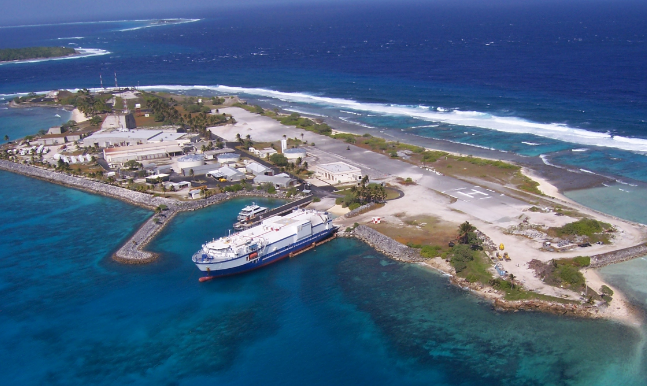ICJ Rejects Marshall Islands Suit Against Nuclear Powers
The United Nations International Court of Justice (ICJ) declared on October 5 that it will not take on the Marshall Islands’ lawsuit against the Great Britain, India, and Pakistan for repeatedly violating the 1968 Nuclear Non-Proliferation Treaty (NPT). This multilateral treaty was designed to prevent proliferation of nuclear weapons and eventually achieve denuclearization. The 16-judge bench ruled 9-7 that there was not enough evidence to claim that a legal dispute between the Marshall Islands and the nuclear states existed for the Court to resolve. In a 1996 advisory opinion, the ICJ made a unanimous conclusion that there “exists an obligation to pursue in good faith and bring to conclusion negotiations leading to nuclear disarmament in all its aspects under strict and effective international control.” In this spirit, the Marshall Islands filed its claim in 2014 against the nine nuclear states, alleging that these countries violated the NPT by failing to respect their disarmament obligations. The ICJ had already rejected six of the claims prior to its decision on the remaining three.
“By virtue of the suffering which its people endured as a result of it being used as a site for extensive nuclear testing, [The Marshall Islands] has special reasons for concern about nuclear disarmament,” said Judge Abraham, President of the Court. “But that fact does not remove the need to establish that the conditions for the Court’s jurisdiction are met.”

A tiny Pacific Island nation with just over 50,000 people, the Marshall Islands experienced constant nuclear tests during the Cold War. The United States conducted over 67 tests between 1946 and 1958, including “Castle Bravo,” the largest nuclear bomb test the United States has conducted. Twenty-three of them occurred just on Bikini Atoll, which forced over 160 residents to evacuate the island. According to The Washington Post, twenty-nine people who were displaced at the time of the first test in 1946 were alive in 2014, including former Marshall Islands Foreign Minister Tony deBrum. He was just nine years old when he witnessed the explosions on his home and testified that “the entire sky turned blood-red” at the court.
U.S. government scientists had declared the island safe for resettlement in the early 1970s, but residents had to relocate in 1978 after tests revealed high levels of radiation in local foods. In 2012, the UN special rapporteur Calin Georgescu said in a report to the Human Rights Council that “near-irreversible environmental contamination” destroyed normal life in the Marshall Islands and the people continued to experience “indefinite displacement.”
The Federation of American Scientists estimated that the U.S. government had compensated $531 million to Marshall Islands by 2005. The $150 million Nuclear Claims Fund had long been exhausted, and many Marshall Islanders still continue to demand complete compensation and full clean-up of their home islands.
